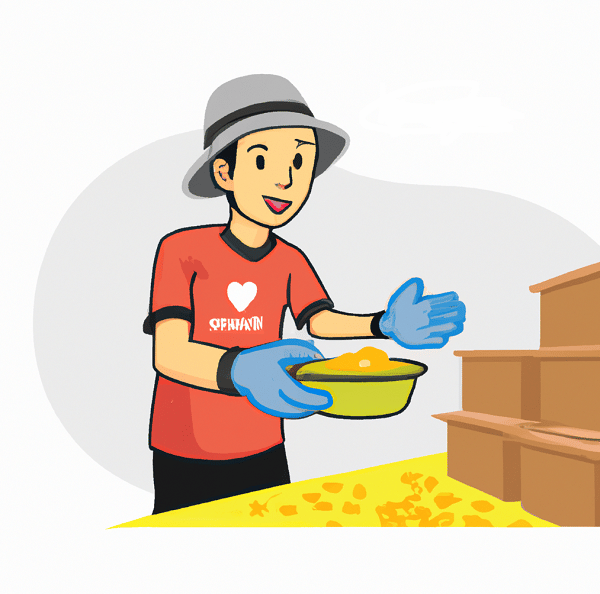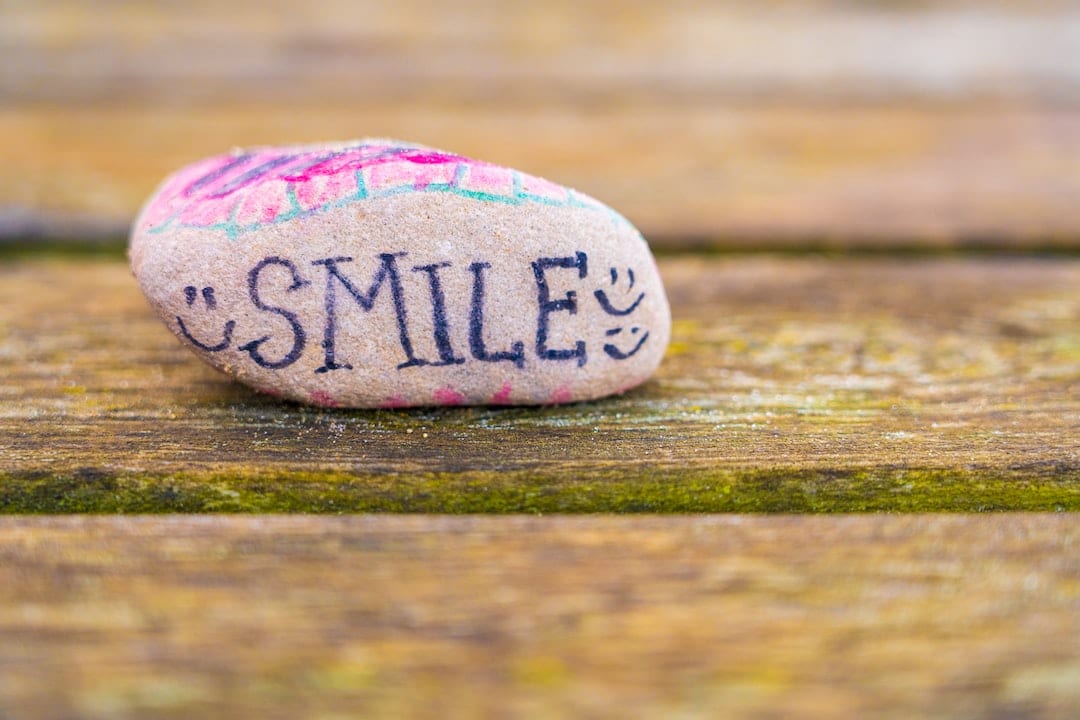
Feeling truly happy is something that many of us strive for, but how often do we think about the role that kindness plays in achieving it? Kindness is integral to finding true happiness and has various physical and mental health benefits. In this article, we’ll learn about the power of kindness and discuss how we can practice it as part of daily life. From giving to others to understanding and empathy to caring for ourselves, Kindness can become a part of our everyday life that has lasting positive effects. Let’s look at the power of kindness and how you can achieve true happiness.
What Is Kindness?
Kindness is a powerful emotion that can be expressed in many different ways, from a simple smile to a generous donation. It is a selfless act of compassion and generosity that can bring true joy to the person who gives and receives it. It can be directed to people, animals, and the environment.
At its core, kindness is simply showing others love, care, and empathy. It’s a commitment to doing and saying things that will improve the world. It’s a way of caring for yourself, your family, friends, neighbors, and even strangers.
Kindness is often a two-way street. For example, when you show kindness to someone, the other person may reciprocate by treating you kindly in return. Feeling appreciated and respected by someone can be gratifying, and it can become a habit over time.
Kindness can also be about broader social issues. When you show compassion to those in need, for example, you can help to provide a sense of security and comfort to those in vulnerable situations. Even a simple smile, hug, or kind word can make a big difference in someone’s life.
Ultimately, we can all strive to incorporate kindness into our lives. It’s a potent force for good and can have an incredibly positive impact on society. Kindness is something that can be taught and learned, and it’s something that will bring real happiness to all involved.
The Benefits of Practicing Kindness
Acts of kindness have always been around, yet it is only recently that people have begun to recognize their power. Kindness, whether large or small, can be mighty and transformative. Science has proven that kindness can profoundly impact physical and mental health and is also one of the surest paths to true and lasting happiness.
Physical Health Benefits
We all know that kindness is a great way to build relationships and show appreciation to those around us, but it can also significantly impact our physical health. Research shows that even the simplest acts of kindness, like a smile or a kind word, can positively affect our bodies.
For starters, kindness can boost our immune systems. Studies have shown that when we show compassion to others, our bodies release oxytocin, a hormone that helps us fight stress and can even reduce inflammation. Oxytocin can go a long way in helping us ward off illnesses, especially during the cold and flu season.
Not only does kindness help us fight off physical ailments, but it can also help us stay active and healthy. Studies have shown that people who demonstrate acts of kindness are likelier to engage in activities that promote physical health, such as exercising or eating a healthy diet. Not only does being kind to others motivate us to take care of ourselves, but it can also help reduce feelings of loneliness and depression, which can further prevent us from taking care of our bodies.
Mental Health Benefits
We all know that kindness offers many tangible benefits, like strengthening relationships and creating a sense of belonging. But did you know that its positive effects also affect how we feel emotionally?
Practicing kindness can improve our mental health in several ways. Studies have shown that being kind can reduce stress and increase our sense of joy and satisfaction. It can also help reduce anxiety and depression and improve our psychological well-being.
When we express kindness, our brain releases a hormone called oxytocin, associated with feeling contentment, empathy, and even love. This hormone helps us cope better with difficult situations and reduces the negative impacts of stress.
Acts of kindness can also foster a sense of community and belonging. Scientists have found that people who act kind towards others tend to have a greater degree of belonging in their social circles, which can lead to excellent mental health.
Expressing kindness for ourselves can help to build our self-confidence and foster feelings of self-worth. It can also allow us to practice self-compassion and motivate us to engage in healthier behaviors.
Social Health Benefits
We all want to be happy and content, but often it feels like an intangible concept. The truth is, not only is it achievable but doing small acts of kindness regularly can go a long way in obtaining it. Studies from psychology and neuroscience have found that when we perform or witness acts of kindness, our brains release endorphins and oxytocin. These hormones make us feel good and create a sense of connection with those around us.
Beyond these physical benefits, kindness can create deeper, meaningful social relationships. Research has found that when people engage in acts of kindness, they tend to feel more connected to their community, have a greater sense of contentment with their lives, and experience higher levels of self-worth. Additionally, studies have discovered that kindness is contagious – when we demonstrate compassion to someone, they often return the favor. This idea of “paying it forward” has a potential ripple effect that can even extend beyond those directly involved.
Though the benefits of kindness are plentiful, it is essential to remember that it doesn’t always have to be a grand gesture. Even the simple acts of holding the door open for a stranger or complimenting someone can make a huge difference in making the world a better place. It’s all about cultivating love and respect for one another.
How to Practice Kindness
When it comes to achieving true happiness, one of the most powerful tools we have in our arsenal is the practice of kindness. Kindness is one of the easiest and most fulfilling ways to live an abundant life, as it creates an energy of love and positivity that can manifest into many beautiful things.
So, how can we practice kindness in our everyday life? Here are a few tips to get you started:
1. Offer compliments – A simple compliment can go a long way and is a great way to connect positively with people. Tell the people in your life how much you appreciate them and all that they do.
2. Speak kindly to yourself – Take time to recognize and appreciate your value and worth. Instead of criticizing yourself, be mindful of the kind words you say to yourself and the kindness you show to your soul.
3. Give generously – Generosity is a beautiful way to demonstrate kindness. Give an unexpected gift, volunteer your services, or offer a helping hand – no act of kindness is too small to make a difference.
4. Show patience – Patience is a powerful form of kindness. Don’t rush yourself or the people around you; give yourself and others the time and space to grow and explore.
5. Offer a listening ear – Listening is one of the most extraordinary acts of kindness. Offer your undivided attention and understanding to the people who need it.
Practicing kindness is an invaluable tool that can help us live healthier and more fulfilling lives. By being kind to ourselves, others, and the world around us, we open ourselves up to endless possibilities for achieving genuine happiness.
Be Compassionate and Understanding
It can be easy to forget to be kind, especially in an era with so much competition and urgency to succeed. But what is often under-recognized is how vital compassionate understanding is to our true happiness as individuals and as part of a wider community.
When you value the importance of kind and compassionate actions, you will discover a new understanding and interconnectedness with others. When we extend our knowledge and compassion to those around us, we create a haven for them to feel accepted and validated. This can be incredibly empowering for those in need of emotional, psychological, or physical support.
But compassion isn’t always easy. It requires us to get out of our bubbles and understand the feelings and needs of those around us. This can be challenging and sometimes scary. But when we push through those boundaries and reach out a hand of kindness, both the giver and receiver benefit.
Kindness doesn’t have to be a grand gesture, either. It can be something as simple as a hug, a kind word, or a smile. This can make a huge difference in someone’s day and be the first step in developing a solid connection with them.
By understanding how our actions can affect the mental health of those around us, we can become more aware of our behavior and compassionate. We can practice this daily: by volunteering our time, showing empathy, listening without judgment, and creating a sense of safety for those who need it.
Compassionate understanding is essential for our happiness and creating a sense of security in our communities. We can all do our part in creating a more humane and understanding world by taking small steps each day to show kindness and support to those around us.
Help Others in Need
It’s no secret that helping others can be incredibly fulfilling. That’s why “the power of kindness” is often repeated. The truth is when we help others in need can profoundly affect our sense of fulfillment and happiness.
When we’re kind to someone, our actions ripple out and touch other people. Whether it’s a smile, a kind word, or a helping hand, our kindness can make a real difference in someone’s life. It can be easy to forget that a small act of kindness can go a long way. But the truth is, it can make a huge difference – not only in the lives of those we help but in our own lives.
Volunteering is one of the best ways to tap into the power of kindness. Whether at a local food bank, a homeless shelter, or a children’s hospital, volunteering your time and effort to help others can make an incredible impact. Not only will you be doing something good for others, but you’ll also be doing something good for yourself. You’ll learn new skills, build relationships, and take on meaningful experiences.
Sometimes, the most extraordinary acts of kindness can be the simplest ones. Showing someone genuine appreciation for their efforts, giving someone a helping hand, or simply giving someone your undivided attention can be compelling. Giving without expecting anything in return can also feel incredibly rewarding.
Perform Random Acts of Kindness
We all know it feels good to do something nice for someone else, but sometimes it’s hard to take the time or go out of our way to be kind. This is why performing random acts of kindness is a powerful tool to help you achieve true happiness.
Random acts of kindness don’t have to be big or expensive gestures – they can be simple and still have a considerable impact. Whether smiling at a stranger, saying a kind word, or doing something to help someone out, there are plenty of little ways to make someone’s day a bit brighter.
In addition to making someone’s day, performing random acts of kindness also positively affects our mental well-being. Kindness releases a hormone called oxytocin in our brain, which boosts our mood. It can also help us build a more positive outlook on life and make us more resilient to cope with difficult times.
It can be easy to get wrapped up in our lives and forget about others, but taking the time to be kind to someone else is always worth it. You never know when a kind gesture could save someone’s day or life. So, even if it’s just a tiny thing, try to be kind to others, and you’ll quickly feel the effects of true happiness.
Practice Self-Care
Practicing self-care is an integral part of achieving true happiness. Self-care is any activity that you do deliberately to take care of your mental, physical, and emotional health. It’s about giving yourself the space and time to care for basic needs, improve your well-being, and appreciate yourself.
There are many ways you can practice self-care. One way is to make time for activities that bring you joy and feel good. This can be anything from taking a walk, reading a book, playing with a pet, or listening to music. It’s essential to find activities that make you feel relaxed and happy.
Another way to practice self-care is to take time for yourself. This can mean taking a break from your daily routine to take time for yourself. It can involve scheduling time to meditate, take a nap, or sit in silence and reflect. Giving yourself permission to do things you enjoy, such as painting, cooking, or gardening, is also essential.
It’s also important to practice self-care by being kind to yourself. This involves being mindful of your thoughts and being compassionate to yourself when you make mistakes. It also involves taking time to appreciate yourself and your accomplishments.
Lastly, self-care is essential to staying connected with the people in your life. This means nurturing relationships and spending quality time with friends and family. It can also mean taking time to enjoy one another’s company.
Practicing self-care is an integral part of achieving true happiness. It’s about taking care of yourself, making time for activities that bring you joy and being kind to yourself. It’s also about staying connected and spending quality time with others. By taking these steps, you can be on your way to living a life of true happiness.
Living a Life Of Kindness
It’s no wonder why so many of us search endlessly for true happiness. Humans have a strong desire to be content and fulfilled in life. But often, simply attempting to achieve that goal can seem impossible. Fortunately, there’s a powerful and straightforward way to unlock true happiness and contentment—kindness.
Living a life of kindness is about more than just saying kind words or offering a polite gesture. It’s about having a genuine desire to be good and understanding of others, even when there’s no benefit to be gained from it. It’s about understanding yourself and knowing when to set boundaries and extend grace. To achieve true happiness, we must be kind to ourselves and others.
Fortunately, becoming a kinder person is not as daunting as it may seem. Here are a few simple things you can do to start living a life of kindness:
• Be mindful of how you speak to yourself and others. Speak kind and encouraging words to yourself and to people you come into contact with.
• Give compliments freely and sincerely. Taking the time to appreciate and acknowledge the good in someone can make them feel seen and unique.
• Offer to help or lend a hand to a friend or family member in need. Being kind to others doesn’t always have to be a big gesture; you can make a massive difference with a small act of kindness.
• Take a break from technology and spend some time with nature. Connecting with the environment can be a great way to clear your mind and express kindness to Mother Earth.
• Give to a charity or volunteer with a local organization. Generosity not only helps provide for those in need, but it can also bring you joy and satisfaction.
Incorporating these simple acts of kindness into your daily routine can help you create a life of fulfillment and true happiness. Kindness is a powerful force, and it’s one of the best and easiest ways to find joy and contentment.
Conclusion
In conclusion, kindness is a powerful yet often underestimated tool that has the potential to transform our lives. By being compassionate and understanding, helping others in need, and practicing self-care, we can cultivate an inner sense of true happiness that radiates outward and touches those around us. Even small acts of love and kindness can make a massive difference in the lives of others and our own. Our world would be vastly different if everyone committed to living a life of kindness and understanding, and it all starts with each of us choosing to practice being kind each day. So, let’s spread the power of kindness today and start on the path toward true happiness.
Read more:
Overcoming Negativity For Optimal Success



